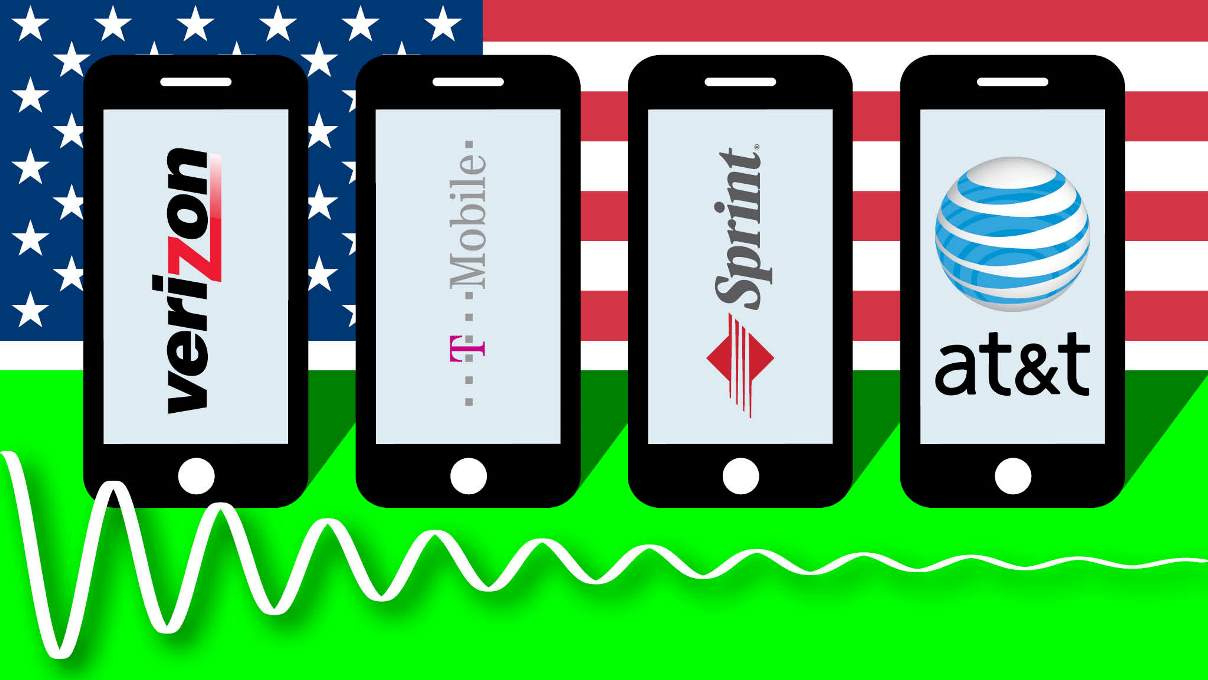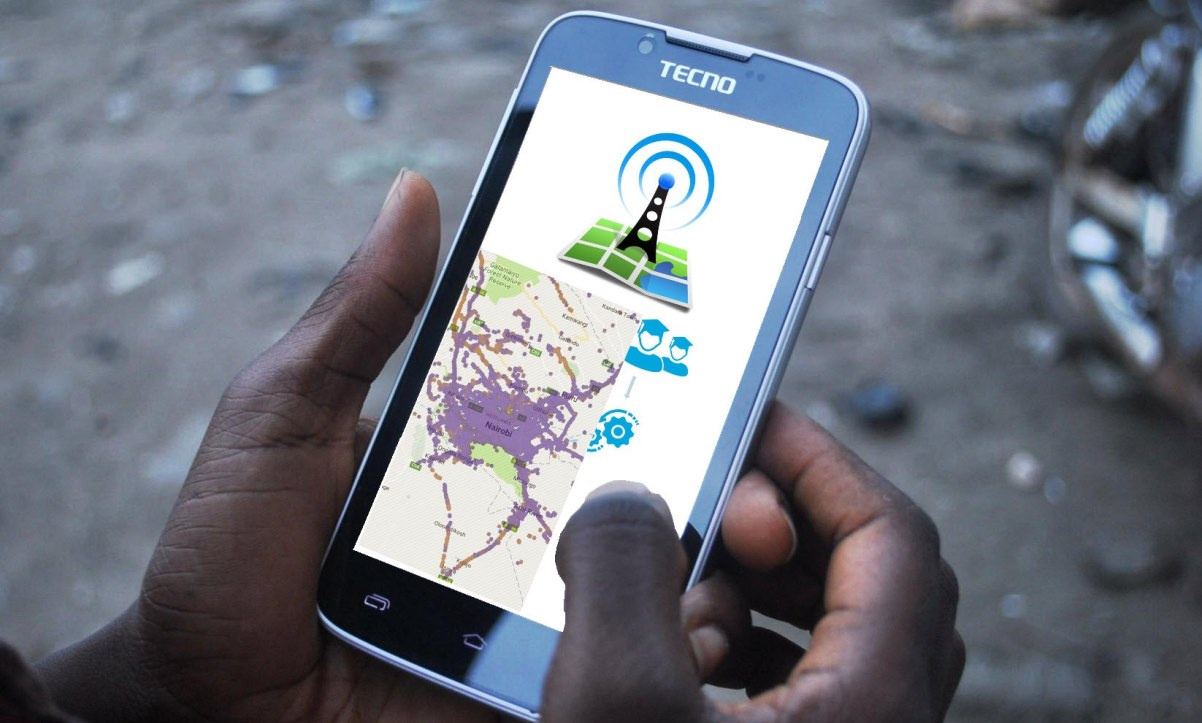How operators form tariffs in different countries of the world

Not so long ago, we introduced a new flexible line in which the user collects his own package of services.
The Yota designer is in many ways not similar to other offers that exist on the Russian market. Moreover, such an approach to the formation of a package of services looks unusual even for foreign operators. In Russia, operators used to sell everything “individually”: minutes of voice communication, tens or hundreds of SMS, and so on. Then everyone switched to packages. Other countries have their own characteristics of "packaging."
We asked how the tariffs for communication in different countries are formed.
Europe and the European Union

With increasing competition and quality of services in the telecommunications market, the cost of tariff plans is reduced, and customers are becoming less attached to their operators. In Europe, this trend is accompanied by tight government regulation.
Since June 15, 2017, roaming charges have been canceled at the interstate level in the EU. Residents can travel across 28 countries with the prices of the operator of their home region. At the legislative level, it was found that a minute of mobile communication between EU countries cannot be more expensive than 0.35 euros, and the price of SMS cannot exceed 0.11 euros.
The cost of mobile Internet has also decreased, but there are restrictions on the amount of traffic. So, the German operator O2allows you to use the lack of roaming within the European Union, but puts a limitation - only 1 GB of mobile traffic is available on the trip, even if more is available in the home region.
Another way to “get around" the law came up with Lycamobile . The English virtual operator does not cancel roaming if you use prepaid packages. And if you decide to connect “time-based” tariffs (with payment only for the time of the made calls), then the standard cost will be quite high.
Great competition and the general legal field led to interesting metamorphoses. There are a huge number of different tariff plans from hundreds of operators. Europe occupies a leading position in terms of the number of operating virtual operatorsin the world - about 600 telecom operators (59% of the global indicator). And this number does not even take into account the "subsidiary" companies and brands of the main mobile operators - Telefonica O2, Vodafone and T-Mobile.
The lion's share of all virtual operators is concentrated in five countries: Germany, Great Britain, the Netherlands, France and Spain account for both the greatest competition and the maximum selection of different tariff plans. The main advantage of “virtuals” is the low price. Virtual operators abandon traditional offices, providing services through the site. Here you can order a SIM card and get it with home delivery. Virtual operators also offer interesting rates for a day, a week or a month. After the expiration of the tariff, the card will be blocked, and you will not spend the extra money.
The share of virtual operators is not as large as it might seem. Virtual operators often operate only in limited locations of the home region and are not very convenient for frequently traveling people. Therefore, residents prefer the "Big Three" - Telefonica O2, Vodafone and T-Mobile, whose tariffs are like three drops of water similar to each other. The choice of operator that suits you right now depends on specific offers, promotions and discounts.
The most interesting way to save lies in choosing a special business tariff (when the employer connects the user) or a family tariff (SIM cards are issued immediately to all family members), each of which adds inexpensive or even free calls to the group (for example, such a service Vivacom ).
Outside the “troika”, operators divide the market in two directions. Some (e.g. Mtel) focus on Internet traffic, offering cable TV and home Internet access, while others offer packages with free minutes for calls. In all cases, the amount will vary depending on the number of minutes, SMS and gigabytes of traffic set in the tariff. This approach allows you to actually choose between two things: more gigabytes (you can choose a tariff only with the Internet) or more minutes of voice communication. However, some operators introduce restrictions, not allowing you to connect to the Internet at prepaid rates.
There are prepaid tariff plans (for example, Lebara ), specially created for international calls, including to Russia. Other tariffs are calculated for active Internet users - at MeteorSeparate tariff plans do not take into account the traffic of social networks and instant messengers. However, there is a tricky feature: in messengers, for free, you can only exchange messages, but not call through them.
Separately, it should be said about the contract long-term (for a year or two) tariff plans. There may be pitfalls in them - for the first six months the price will be really lower than usual tariffs, and then it will start to rise (seen from Tesco Mobile ).
For all these tariff plans, only one condition is common: you get a package formed from several services. You can find a tariff plan compiled specifically for your requirements (for example, without connecting expensive mobile Internet), but even then you get an additional “load” in the form of hundreds of SMS messages or other services from a telecom operator.
USA

As we mentioned in a previous article , in the USA, communication is very expensive. On tariffs for $ 30-40 you will get a traffic limit of 2-4 GB. However, it is possible to connect an unlimited tariff - at T-Mobilefor 75 dollars a month. This is not the most expensive tariff plan, those that are designed for calls around the world are more expensive. The only way to save money is to choose a package of services immediately for the whole family. By connecting multiple SIM cards at once, you can gain 10-20 dollars a month.
All major telecom operators - T-Mobile, Verizon, AT&T, Sprint - offer very similar rates, the difference is only in the monthly volume of mobile Internet. Each tariff can additionally include roaming, international calls, SMS, as well as some unique services.
T-Mobile remains one of the most progressive carriers in the country. It was he who introducedThe world's first unlimited internet in roaming. The only limitation was speed: the operator forcibly connected roaming subscribers only to 2G networks.
In 2017, even with limited access to the network, T-Mobile offers the Music Freedom option, which provides free traffic from popular streaming music services.
T-Mobile offers not just tariff plans, but applications within which a tariff is “wrapped”. So, in the Binge On application, video was streamed from Amazon, YouTube, HBO, Netflix and many other sites. You can have any tariff plan, but by installing one Binge On application, you will receive for free additional services within the framework of already paid. In this case, the operator will be able to broadcast additional advertising through the application.
Africa

Africa has become a unique region in many ways. The telecommunications and mobile communications market is developing very fast on the continent. In many countries, especially in southern Africa, there is 4G Internet. Moreover, not everywhere there is a developed financial system, which is exacerbated by the weakness of national currencies. The absence of ATMs and banks as such has led to the fact that the phone is becoming not only a means of communication, but also a wallet. Moreover, cryptocurrencies are actively developing, which in many cases are more stable than devaluing national currencies.
In such conditions, it is impossible to do without a stable connection. South Africa's largest mobile operator, Vodacom, offers both contract offers and prepaid rates. On the site you can customize your package individually for each user. In prepaid offers, users have various options for voice call packages. As a rule, voice communication is paid per minute, and it is possible to choose the most convenient rate for the price. You can also select the amount of traffic. The user pays for the package of the required megabytes or gigabytes, and excess traffic is paid extra. For example, in a package with 0.79 cents (about 3.5 p.) Per minute of conversation within the network, each megabyte will cost 20 cents.
An interesting feature is the presence of some operators (for example, Orange Egypt ) roaming within the home region. In the Baladna ElGedeed tariff plan, a low price for calls exists only for regions outside Cairo and Alexandria. In “hazardous” areas, the price will increase by 30%.
South America

Latin America cannot compete with Europe in the number of mobile operators, but there are still a lot of them there. In many countries of the region, mobile Internet (like all mobile communications) is less developed than in Russia, but still quality, speed and coverage are quite tolerable. In Argentina and Brazil for about $ 13 you can use the Internet for almost a week to view maps and chat in instant messengers. However, using a contract to use the connection is even cheaper - for a dollar a day.
The peculiarity of the region is the low quality of services. Sometimes operators can connect additional services and not turn them off upon request (judging by the complaints of Russian tourists).
Other regions

There are two main operators in China : China Mobile(the largest mobile operator in the world with 833 million subscribers) and China Unicom . China Mobile boasts excellent network coverage even in the most remote villages. The young audience prefers China Unicom, as it relies on the development of mobile Internet and offers more favorable rates for Internet users.
In Israel, HOT Mobile and Golan Telecom often offer the most advantageous tariff plans only for new customers. However, such offers are valid for a limited period of time.
In India, Airtel , Idea and Vodafonehave completely different tariffs for different regions of the country, which adds to the problems of travelers. If we compare the prices on the operators' websites, we can conclude that for travel it is more profitable to take several SIM-cards of different operators (depending on the cities that you plan to visit).
In Indonesia, Telkomsel, a leading operator, has divided Internet traffic and calls / SMS according to different tariff plans. Moreover, the Internet traffic package itself is divided into two independent services with different prices: 4G and 3G. And Dialog in Sri Lanka further divides traffic into daytime and nighttime: you can spend half of it only during the day, and the second half at night.
In the UAE, the DU operator Included in some tariff plans unusual bonuses - a free trip to Uber, free tickets to entertainment centers, boating with dinner and others.
